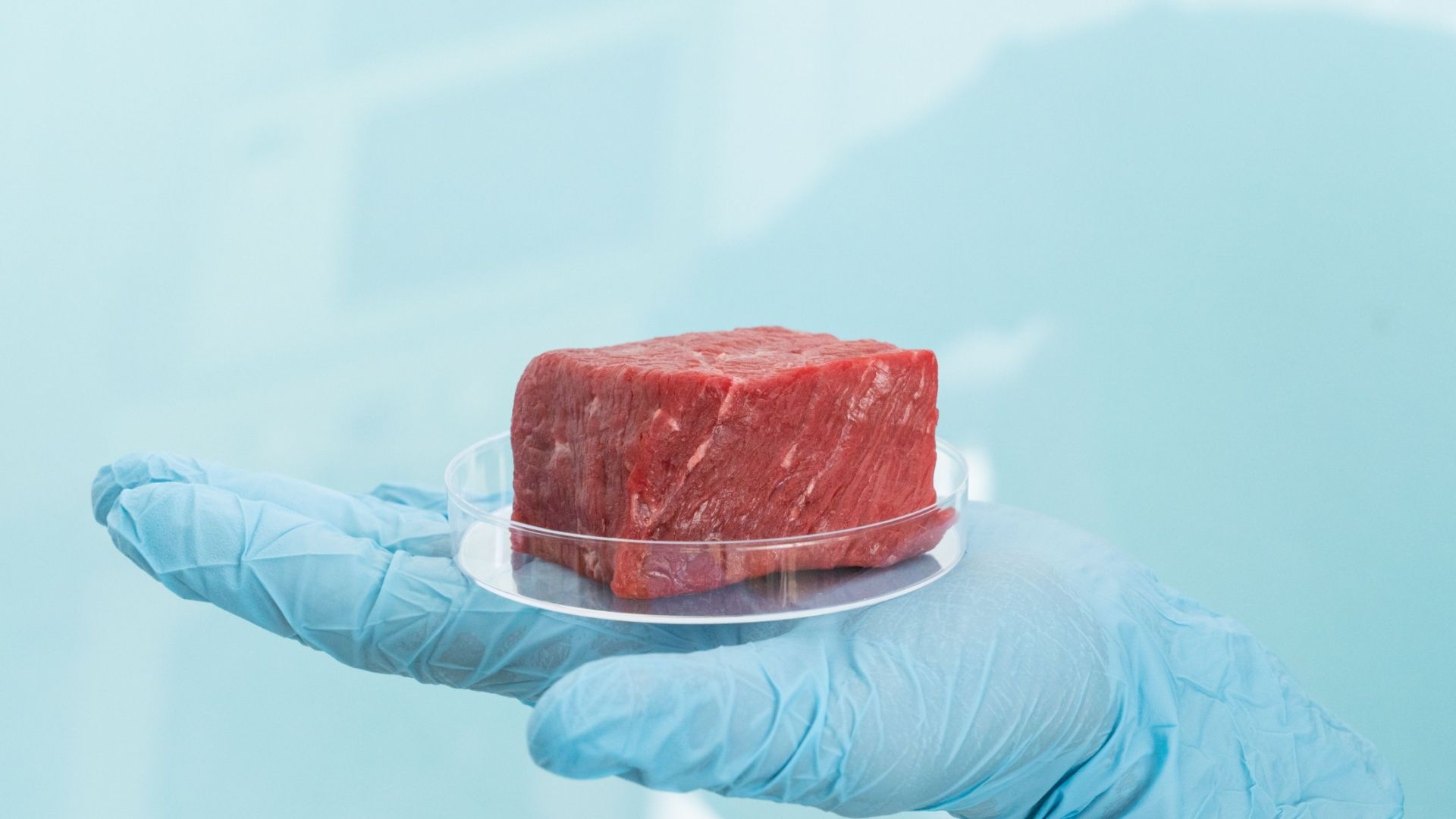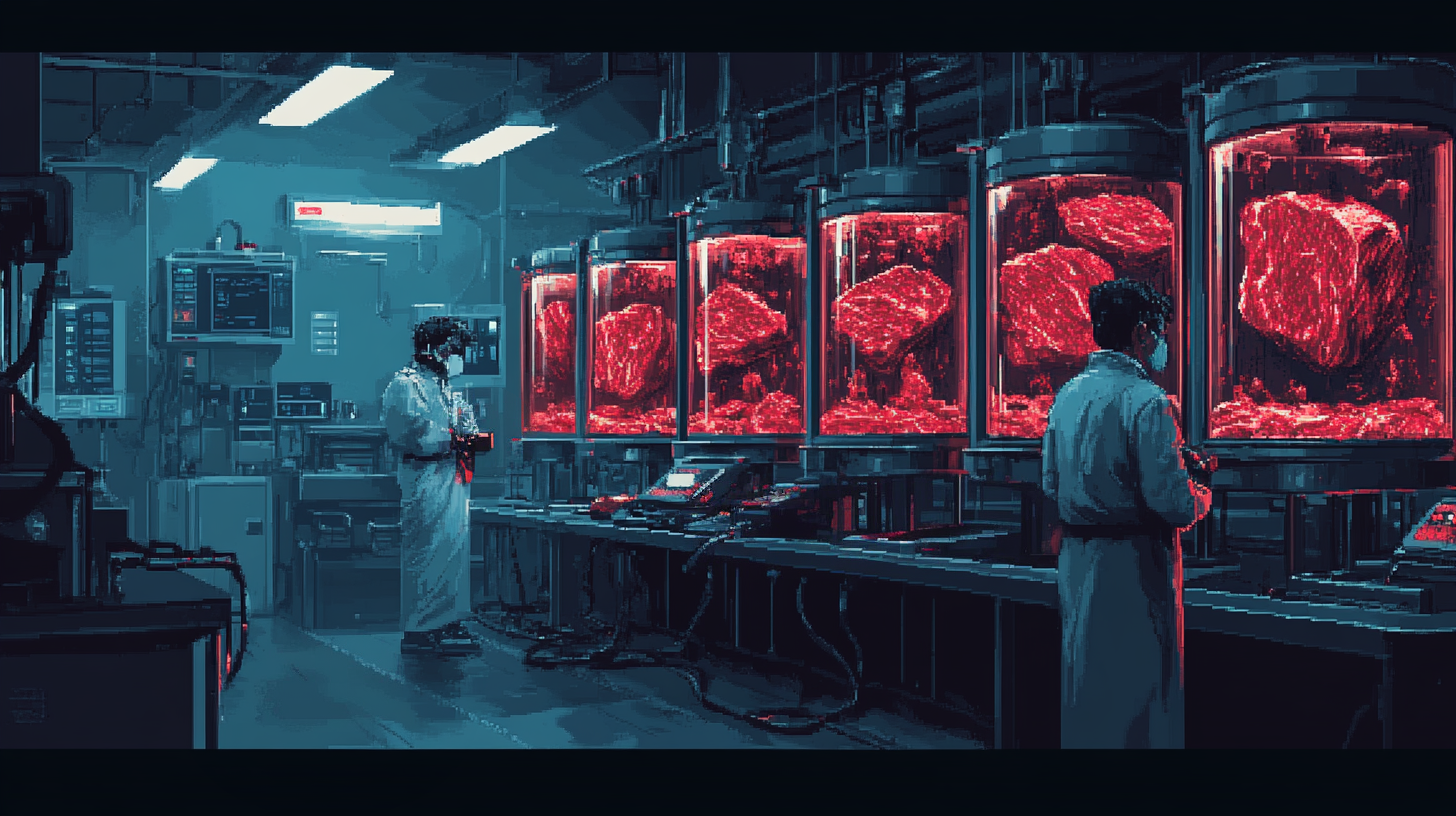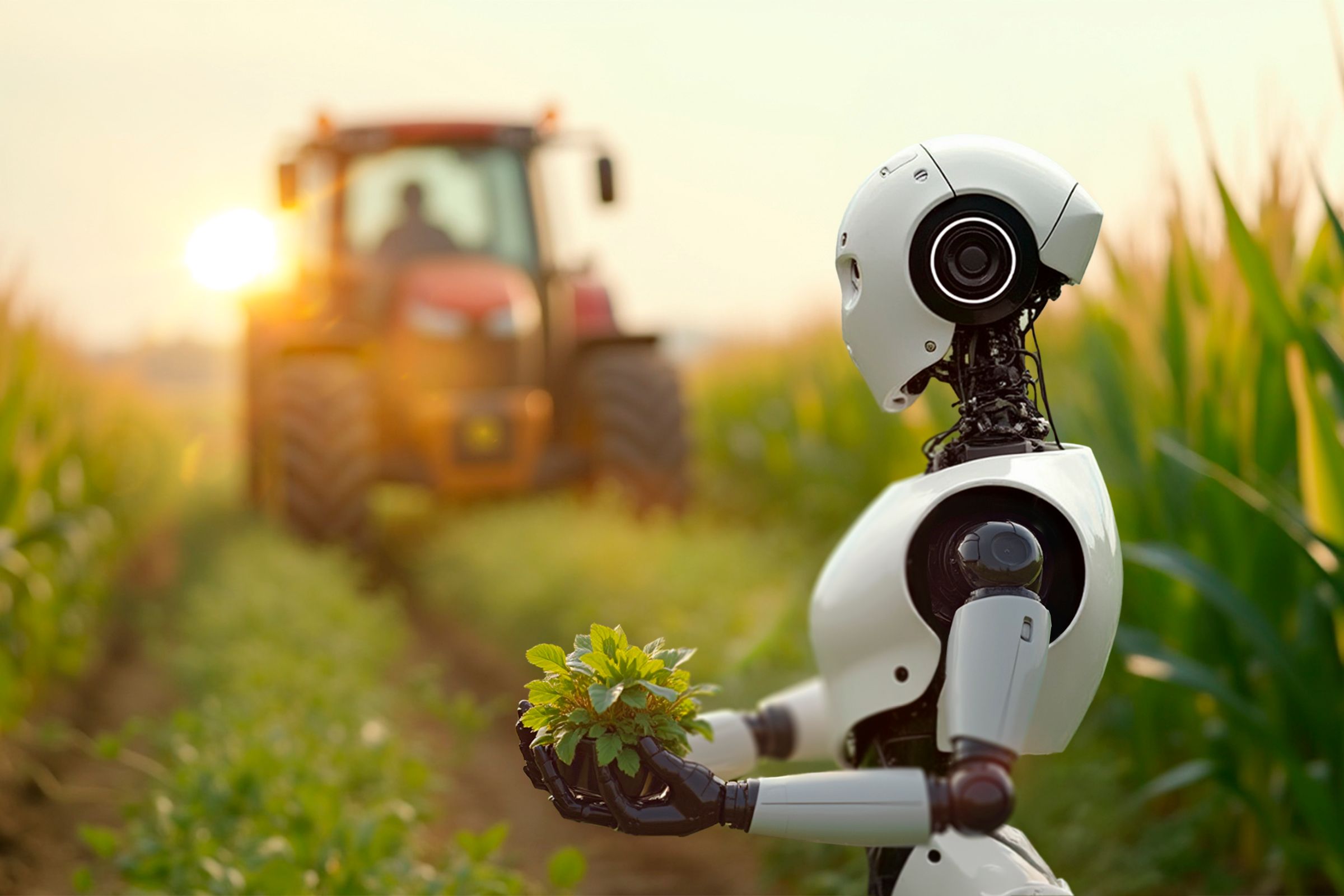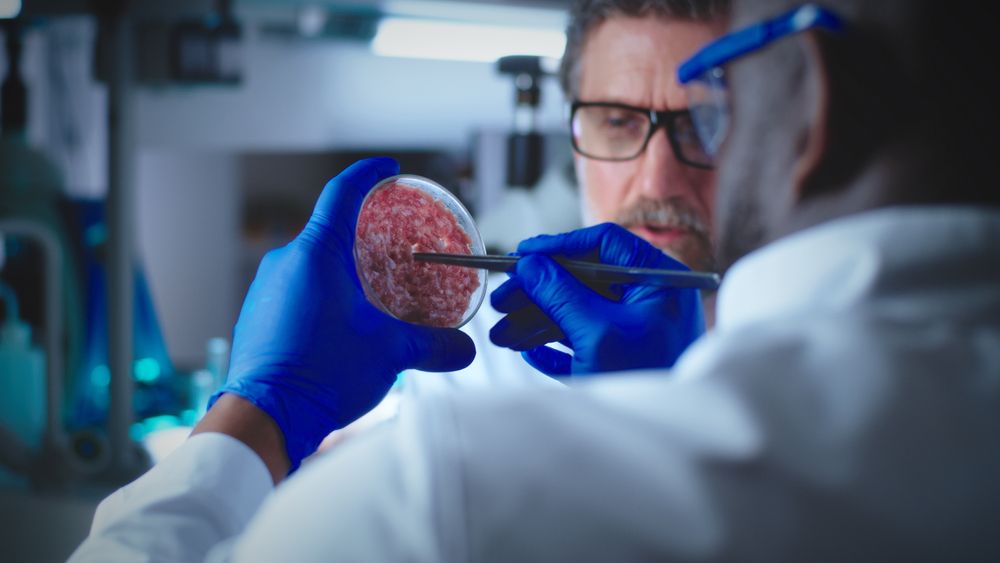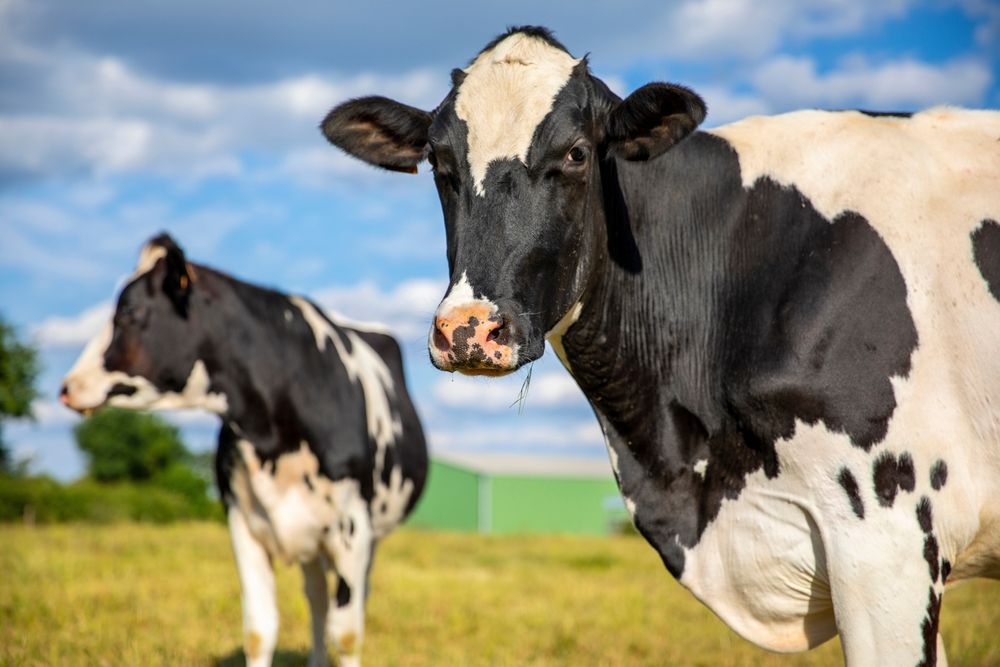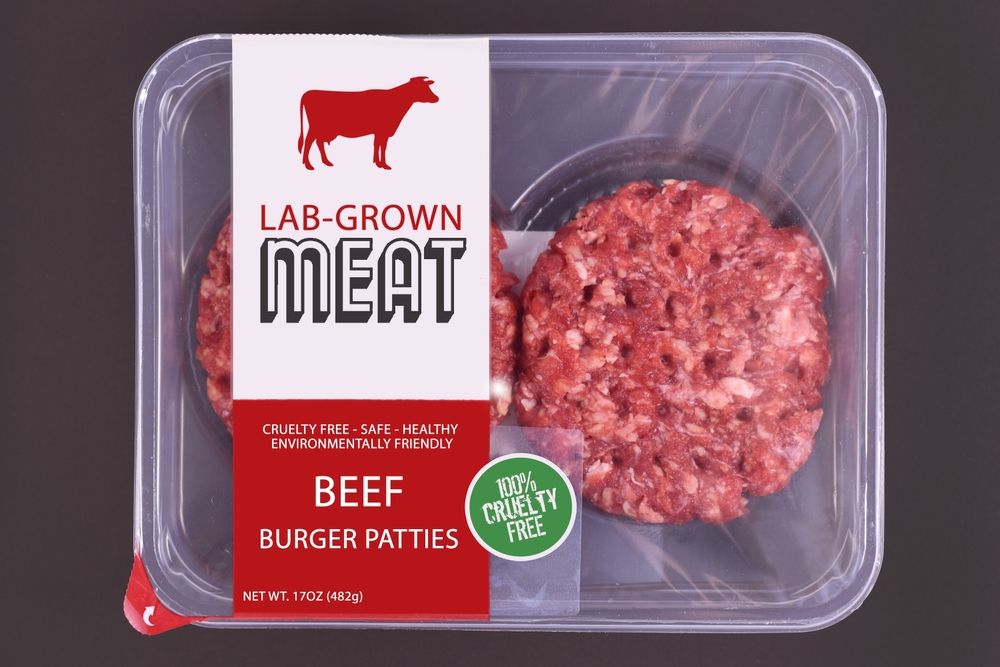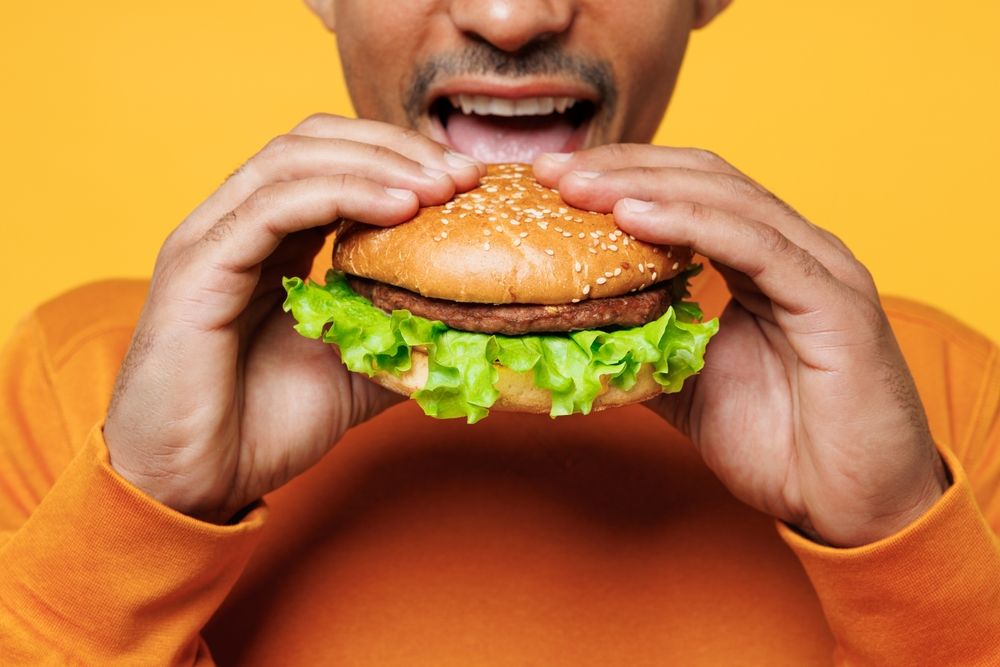Abstract
- Lab-grown meat tackles environmental and moral challenges.
- Challenges embody excessive manufacturing prices and public notion.
- Style is blended; cultural norms influence acceptance of lab-made meat.
Until you are vegan or vegetarian, you in all probability eat and revel in meat. It is one of the crucial necessary meals sources for our species, and probably why we developed our massive brains within the first place, however meat has its issues.
Whether or not it is the environmental price of business meat manufacturing, or moral points across the therapy of animals, meat is extra controversial the extra we march into the long run. So what about rising our burgers in a lab as an alternative of a cow?
From Fiction to Actuality, Lab Meat Is Right here
The concept of “vat-grown’ meat has been in a number of sci-fi tales. In 1952’s The Space Merchants, for instance, “Chicken Little” is a big blob of meat that simply retains rising, and people slice the meat from it to feed the world. Many sci-fi tales function synthesized meals, which incorporates protein that is basically meat, however yow will discover lists of stories with “cultured” meat on the internet if you happen to’re .
The purpose is that, in fiction, authors have been mulling the concept we will merely make meat or an acceptable meat substitute with out the messy means of breeding and slaughtering animals, and as expertise has superior, real-world scientists and engineers have taken that ball and ran with it.
In 2013, we had the first lab-grown burger, introduced by Dr. Mark Put up at a price of $330,000! Since then, the FDA has approved companies like UPSIDE Foods, to promote cultivated meat throughout the USA.
There’s Nonetheless a Lot of Challenges to Overcome
This may sound like lab-grown meat is true across the nook in your native grocery store, however the fact is that we have solely achieved the proof of idea part. We all know it may be achieved, however that is completely different from realizing the way to scale meat manufacturing, and producing it at a scale the place it is low-cost sufficient to compete with pure animal meat sources.
It is also fairly exhausting to compete with incumbent infrastructure within the present meat trade. Meat cultivation will want bioreactors, development media, and different essential tools. Somebody has to pay for that and take the chance, so it is no shock that solely a handful of firms have to this point braved this new trade.
Then you may have the difficulty of public notion, whether or not the product truly tastes good or not, and pushback from the present meat trade about points like labeling lab-made beef as “beef”, which they clearly don’t need.

Associated
Does This Really Resolve Any Issues?
Lab-grown meat has the potential to handle and even resolve some concern that include conventional meat manufacturing. There is a main concern concerning the vitality and water prices of manufacturing, for instance, beef. There are even climate-related issues, since cows produce methane, which is a highly-potent greenhouse gasoline. So, presumably that may be alleviated by cultivating the meat in a managed surroundings.
Other than surroundings and vitality hopes, there’s additionally the moral dimension. Cultivated meat has no nervous system and no mind. There is no potential for struggling or mistreatment. Nevertheless, proper now, meat cultivation wants Fetal Bovine Serum to work, which signifies that there’s nonetheless animal slaughter concerned. This can be a key concern scientists need to remove earlier than we will say lab-grown meat is actually moral.
If lab-grown meat does abruptly develop into price-competitive with pure meat manufacturing, and begins consuming into its market share, there’s additionally the moral implication of what occurs to the thousands and thousands and thousands and thousands of animals which have been bred and solely exist to develop into meals for us. Sustaining them prices cash, so there’s the specter of mass-culling if the changeover occurs too rapidly.
It is also unclear if the vitality necessities will not offset any environmental advantages, however there are a lot of components, resembling clear sources of energy and applied sciences to recycle, for instance, the water used within the course of.

Associated
What Are Your Solar Power Options If You’re Renting a Home?
Giving renters their time within the solar.
What Do Folks Say In regards to the Style?
All of the reactions to the style of lab-grown meat I’ve seen, heard, or learn to this point are fairly blended. It tastes like meat, as a result of these are muscle cells similar to in an actual steak or hen breast. The factor is, the muscle mass of an actual animal aren’t only a bunch of muscle cells clumped collectively. It is a complicated construction formed by the animals’ train and life-style. So lab-grown meat is simpler to make palatable if it is floor into minced meat or processed into hen nuggets, however it’s not like we will replicate a steak but.
However Would You Eat It?
It is also necessary to remember the fact that what tastes good is not nearly chemistry. It is about what you’ve got grown up with, what’s a part of your tradition, and your pre-existing beliefs about meals. Whereas eating insect protein is normal in much of South America, for instance, North Individuals are more likely to be squeamish about it.

Traeger Ironwood Pellet Grill
Likewise, my mother considers sheep brains and fish eye soup to be scrumptious, however I believe it is gross. I like beef tongue, however my spouse thinks that is gross, as a result of she’s from part of the nation the place folks do not eat it.
Personally, I am fairly adventurous in terms of making an attempt out new meals. I’ve eaten bugs, I’ve eaten the Unimaginable Burger, and I would positively strive some lab-grown meat if another person would pay for the expertise!

